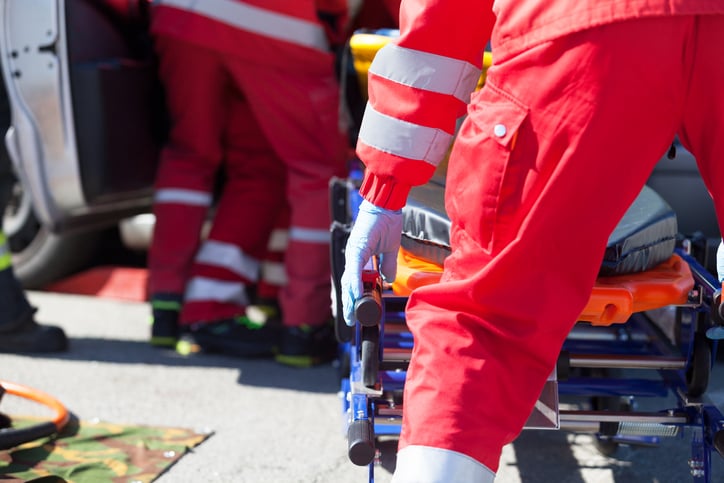
Life as a paramedic means intense highs when you save lives and tend to grateful patients, as well as bottomless lows when patients die, suffer, or become combative and angry. You’ll need to be prepared for the sudden adrenaline rush of a patient in need, as well as the slow and methodical approach of intubation, explaining procedures to patients, as well as gaining the trust of seniors and children. Paramedic jobs consistently rank among the most stressful professions. Over time, this stress affects both your physical and mental health.
Self-care is more than just a buzzword. It’s key to your well-being. And your well-being has a significant impact on patient outcomes. Here’s how to deal with the daily stress of your job.
Take Care of Your Body and Your Mind
Keep your body and mind in optimal shape with these strategies:
- Get at least 30 minutes of exercise a day. Exercise improves your health, but it can also help you deal with stress. People who exercise regularly have lower rates of depression and anxiety.
- Get plenty of sleep. This may mean that you need to work a regular schedule, rather than picking up a few extra shifts whenever they are available. Sleep is key to your body’s ability to handle stress.
- Eat a rich, varied diet. If you’re trying to lose weight, don’t just cut calories. Talk to a doctor or dietitian about how to achieve a healthy weight without missing out on key nutrients.
Know Your Biggest Stressors
Everyone handles stress differently. What are your biggest stressors? Do you struggle with difficult patients, feel guilty when you can’t save one, hate dealing with hospital administrators, or get frustrated when you have to fight traffic? Knowing your biggest triggers is key to managing these stressors. When you understand which experiences are most likely to make you feel awful, you can begin adopting strategies such as meditation, deep breathing, changing your schedule, and minimizing exposure to stressors to manage them.
Draw Strong Boundaries
For many paramedics, stress really begins to accumulate when the boundaries between work and life disintegrate. Spending all your time talking about work, taking calls at home from work, and failing to carve out personal time are some strong signals that you need better boundaries. Protect your time; it’s your most valuable asset, and when it’s gone, you never get it back.
Form Connections with Other Paramedics
Your spouse, friends, or parents can offer a sympathetic ear. However, they don’t understand the daily pressures of saving lives. Form friendships with your colleagues, and don’t shy away from opening up. The people you work with each day have been there and may be eager to decompress after a particularly bad day.
Consider setting up a monthly happy hour, or even a local paramedic message board. For more support, check out The Code Green Campaign, which offers support groups, mental health referrals, and similar services to first responders.
Talk to a Professional
If your car started flashing a strange light, you wouldn’t ignore it. You’d take it to an expert. Yet too often, paramedics treat their most valuable asset, their mind, like something that doesn’t matter at all. Your brain is a finely tuned machine. Stress can throw it off kilter, changing the way it processes information. So if you feel depressed, anxious, or unable to focus, don’t ignore it or try to “toughen up.” Talk to a professional. A therapist can offer practical tips for hacking your brain, managing stress, and improving your quality of life.
Use the Right Equipment
One of the biggest stressors paramedics face is the inability to save a patient. You can’t save everyone, and this is not your fault. The wrong equipment, however, can make your job more difficult and more stressful. Let us help you reduce needless morbidity and mortality with the right suction equipment. Download our free guide, The Ultimate Guide to Purchasing a Portable Emergency Suction Device.
Editor's Note: This blog was originally published in April 2022. It has been re-published with additional up to date content.














